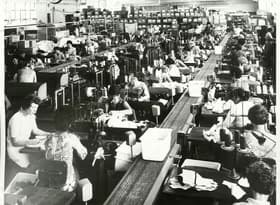The number of medium-high and high-skilled jobs in the manufacturing sector [1] has grown by an average of 1.7%pa over the last 15 years, highlighting the growing demand for skills within the industry. The increased skills requirement is not a phenomenon that is unique to manufacturing, but is perhaps accentuated by the competitive environment that the sector faces in an ever-more globalised economy.
Back in 2000, 23% of employees in the manufacturing sector had diploma or degree-level qualifications and were classified as medium-high or high-skilled workers. By last year, that proportion had climbed to 33% (see Graph 1), and Infometrics forecasts that it will lift further over the next five years.
Graph 1

The changes in the industry’s workforce reflect New Zealand’s focus within manufacturing on niche and high-value products. It has been apparent for decades that New Zealand cannot compete with the likes of China and other countries with cheap labour when it comes to mass production. Focusing on the areas where we are able to add greater value, such as smaller product runs or high levels of customisation, requires a workforce that is able to adapt processes and respond to the client’s needs.
From a business cost point of view, the relative costs of labour and machinery have moved significantly in favour of the latter over the last 25 years. Low unemployment has made workers harder to find and forced businesses to introduce more labour-saving technology. These pressures will only become more pronounced over the next decade as New Zealand’s population continues to age and an increasing number of older workers exit the workforce.
This point exemplifies the growing need for an increased skill level of workers within the manufacturing industry. Lower-level jobs are being superseded by more skilled or technical roles that enable manufacturing businesses to be more involved in the broader production process from design through to delivery.
Infometrics forecasts that there will be over 25,000 job openings in the manufacturing sector over the next five years, representing 17% of the industry’s workforce. These job openings will provide opportunities for both new workers to enter the industry and existing workers to upskill and move into more technical roles.
Competenz is involved in the Got a Trade? Got it Made! campaign and offers a range of training options across the manufacturing industry. These apprenticeships and qualifications help young workers find their feet within the industry, as well as enabling existing staff to lift their skills base to progress their career and secure their future employment prospects.
The future of manufacturing is very different to how the industry looked 50 years ago. Adapting to the changing economic environment is a key part of being successful in business, and having skilled staff that are trained and equipped to change with the business shapes as a key requirement for the industry going forward.
[1] For the purposes of this article, we have defined the manufacturing sector to broadly align with those parts of the industry covered by Competenz’s training programmes, so our figures exclude meat and dairy processing, as well as areas covered by other Industry Training Organisations (e.g. cement and concrete manufacturing, boatbuilding and some transport manufacturing).















